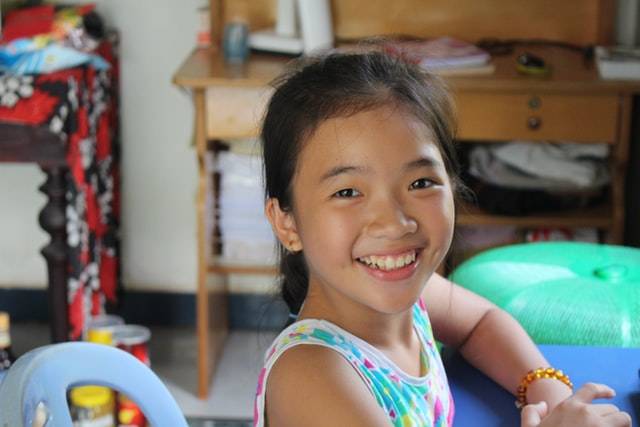How to Teach a Child to Be Grateful

Gratitude can be difficult to teach children, but it is important for them to learn. Having thankful gratitude can help your child grow into an empathetic and sensitive individual. There are a number of other benefits of teaching your child how to be grateful for their situation and the things others do for them.
However, if you are concerned about your child’s behavior or if they seem like they are never concerned about other people, you can also seek the help of a child therapist. You can find a qualified therapist at BetterHelp.
Benefits of Teaching Gratitude
Being grateful can make us feel better about our lives and situation. In fact, recent research found that gratitude is connected to happiness, and don’t you want your children to be happy?
Gratitude can improve your outlook on life and can foster better relationships because it can make someone appreciate the people in their life. It can also foster satisfaction with life and help to improve motivation. For some, research shows that it can also help people offer support to other people and improve their grades, hobbies, and interaction with their community.
Even for adults, gratitude is important for livelihood and well-being. It can help us sleep well and live long. Gratitude can help us live in the present and be optimistic about everything that the future may hold.
All of these benefits don’t make it any easier to teach gratitude to your children, but it does not have to be complicated. Let’s check out some things you can do!
Gratitude Games
You can play fun games with your children that teach them to be grateful. One such game uses dice. Roll the dice and then your child will have to name that many things that they are grateful for. You can also make it more complex by allowing them to move around a board game each time they name one. Then, you can play along and work your way towards the finish line.
You may also want to try a gratitude walk. As you take a walk around the neighborhood (which is also great for exercise), have your child name the things that they see that they are grateful for. They may say the house, the neighbors, the sun, or any other number of things.
Teach “Thank You”
It is important to be a positive role model and part of this is teaching your children to say “thank you.” Sure, it may take a while before it becomes a habit, but modeling these behaviors goes a long way.
You probably do not want them saying “thank you” without knowing why though. Explain to them what it means and why they should say it. Tell them that other people are giving them something whether it is a physical object, time, or effort.
Around their birthday, you may also want to have them write “thank you” notes to the people who came to their party or gave them gifts. When they show their gratitude, praise that positive behavior and encourage them to continue being empathetic.
Reciprocate Kindness
Showing kindness to other people who do nice things for us is a great way to show our gratitude and exercise our empathy. Encourage your child to show appreciation by being kind. This could mean to return a favor or to loan a toy to friend. It could also mean to help out neighbors or relatives.
Try asking your child to do one act of kindness each week in order to earn their allowance. Have them tell you why they chose their act for the week and talk to them about why empathy is important.
Positive Perspectives
Sometimes it can be hard to be grateful because our sour mood can cloud our thinking. However, try to teach your children to find the positive aspects of negative situations and experiences. For example, when a pet passes away, you can tell them to recognize that they the pet at least had a good life, and that the child had some wonderful times with them before they died.
You can try to encourage your child to find the silver lining in any negative experience. While not every negative situation is appropriate for this, many are. If they are unable to join their friends or if they lose a toy, ask them to find something positive about the situation.
Conclusion
Gratitude is important and it is never too early to try to teach children to learn empathy and how to be grateful in their day-to-day life. The most important thing is that you model gratitude for your children to see. While this is not always easy, doing so can make you and your children happier in the long run.
Author Bio: Marie Miguel has been a writing and research expert for nearly a decade, covering a variety of health- related topics. Currently, she is contributing to the expansion and growth of a free online mental health resource with BetterHelp.com. With an interest and dedication to addressing stigmas associated with mental health, she continues to specifically target subjects related to anxiety and depression.

